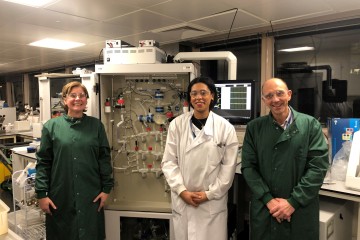Strategic grant
Revolutionising relative bioavailability testing: Using AI-PAT to eliminate animal models

At a glance
Completed
Award date
October 2024 - March 2025
Grant amount
£184,526
Principal investigator
Professor Hannah Batchelor
Co-investigator(s)
Institute
University of Strathclyde
R
- Replacement
